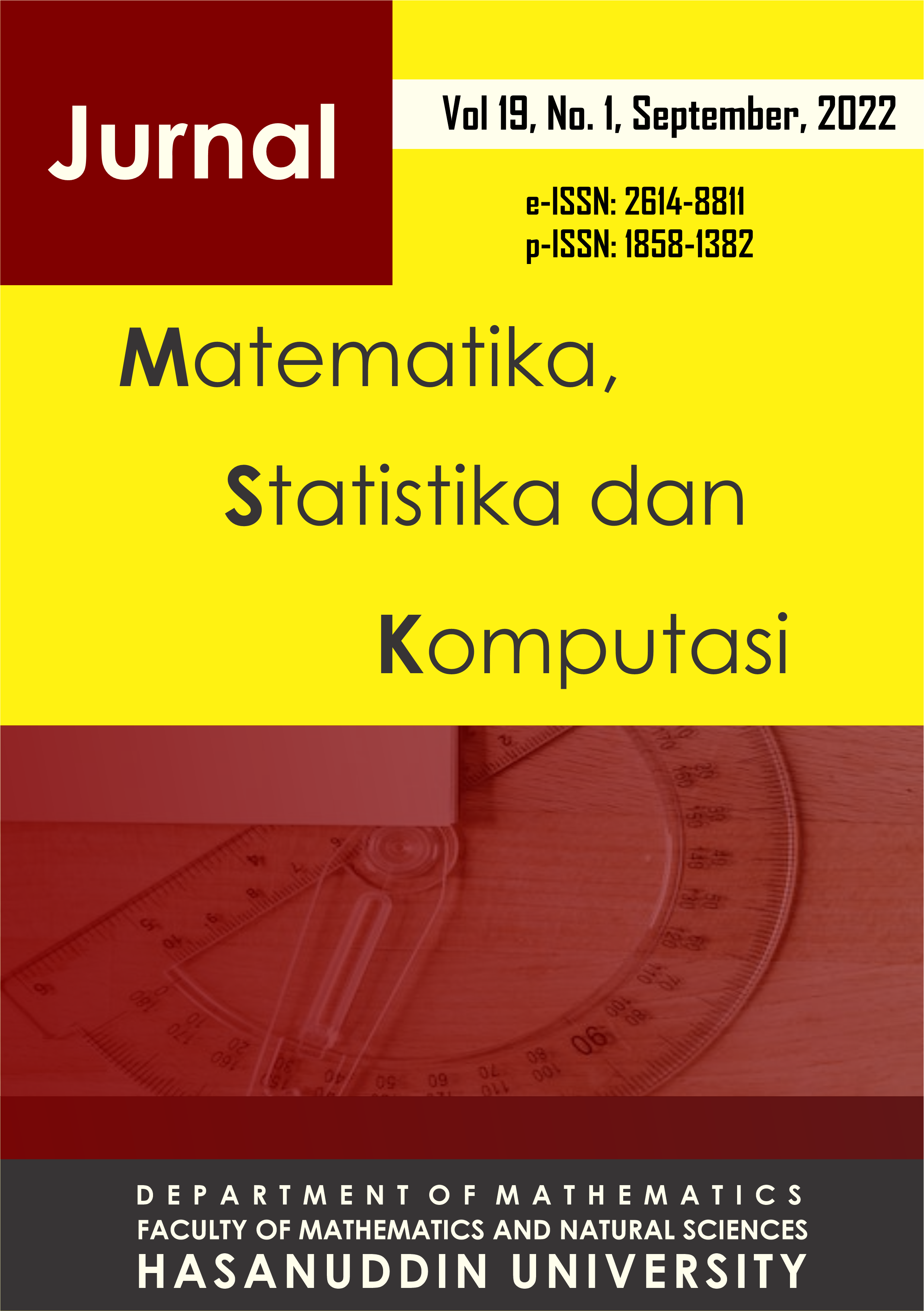Forecasting Inflation In Indonesia Using The Modified Fuzzy Time Series Cheng
DOI:
https://doi.org/10.20956/j.v19i1.21868Keywords:
Inflation,, Forecasting, Modified Fuzzy Time Series Cheng and MAPEAbstract
Inflation is one of the most important indicators to analyze a country’s economy. Therefore, it is necessary to forecast the inflation rate. Forecasting can be done by various methods, one of which is Fuzzy Time Series Cheng. In this study, several modifications were made to the method used. The purpose of this study is to forecast using the Modified Fuzzy Time Series (FTS) Cheng method and determine the accuracy of the forecasting results obtained. The results of this study indicate that the Modified FTS Cheng method can be used in forecasting, either by determining the interval average-based or using the Sturges equation. Based on the results of the calculation of forecasting accuracy using Mean Absolute Percentage Error (MAPE), the accuracy for Modified FTS Cheng by determining the average-based interval for forecasting based on the current state and next state is 11.58% and 5.78%, respectively. Furthermore, the Modified FTS Cheng by determining the interval using the Sturges equation resulted in a MAPE value of 9.61% and a FTS Cheng of 7.54%. The MAPE value of each method is less than 10%, which means that the method has a very good performance, except for Modified FTS Cheng by determining the average-based interval for forecasting based on current state has good performance with MAPE values between 10 % and 20%.
References
Alyousifi, Y., dkk. (2020). Markov Weighted Fuzzy Time-Series Model Based on an Optimum Partition Method for Forecasting Air Pollution. International Journal of Fuzzy System.
Ariyanto, R., Tjahjana, R. H. & Udjiani, T. (2020). Forecasting Retail Sales Based on Cheng Fuzzy Time Seies and Particle Swarm Optimization Clustering Algorithm. Journal of Physic: Conference Series.
Arnita, N. A. & Marpaung, F. (2020). A Comparison of The Fuzzy Time Series Methods of Chen, Cheng and Markov Chain in Predicting Rainfall in Medan. Journal of Physics: Conference Series.
Arroyo, D. O. & Jens, R. P. (2018). A Weighted Fuzzy Time Series Forecasting Model. Indian Journal of Science and Technology, 11(27): 0947-5645.
Badan Pusat Statistik. (2021). Inflasi. https://www.bps.go.id/subject/3/inflasi.html. Diakses pada tanggal 26 April 2021.
Guo, H., Witold, P. & Xiaodong, L. (2018). Fuzzy Time Series Forecasting Based on Axiomatic Fuzzy Set Theory. Neural Computing and Applications.
Iqbal, S., dkk. (2020). A New Fuzzy Time Series Forecasting Method Based on Clustering and Weighted Average Approach. Journal of Intelligent & Fuzzy System, 38(5): 6089-6098.
Wismarini, N. R. & Untung, K. (2020). Pemodelan Inflasi di Kota Surakarta Tahun 2000-2019. Prosiding Sendika, 6(1).
Xihao, S. & Li, Y. (2008). Average-Based Fuzzy Time Series Models for Forecasting Shanghai Compound Index. World of Modelling and Simulation, 4(2): 104-111.
Downloads
Published
How to Cite
Issue
Section
License
Copyright (c) 2022 Author and publisher

This work is licensed under a Creative Commons Attribution 4.0 International License.

This work is licensed under a Creative Commons Attribution 4.0 International License.
Jurnal Matematika, Statistika dan Komputasi is an Open Access journal, all articles are distributed under the terms of the Creative Commons Attribution License, allowing third parties to copy and redistribute the material in any medium or format, transform, and build upon the material, provided the original work is properly cited and states its license. This license allows authors and readers to use all articles, data sets, graphics and appendices in data mining applications, search engines, web sites, blogs and other platforms by providing appropriate reference.







